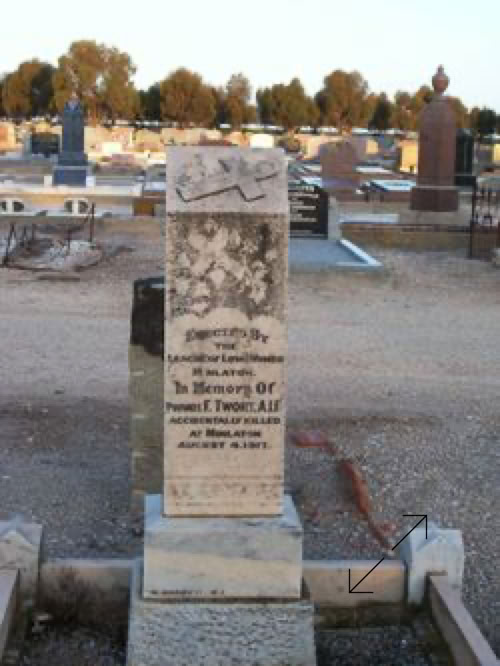PROMOTING THE HISTORY AND ARCHIVES OF MT COMPASS
Twort, Frederick
Frederick Twort
With his mother placed in the Destitute Asylum, Frederick Twort (recorded as John Twort in his 1890 birth records) was briefly admitted to the Industrial School at Magill in August 1892. This school was established by the colonial government for children who were under their care as being either neglected, destitute, or orphaned. They would remain at the school until suitable accommodation was found for them, such as a foster family, which was the case for Frederick (as his name would be recorded from then on). His father was never identified.
Mr Thomas Wills of Bull’s Creek took on the responsibility of foster parent, from August 1892 until late 1903 when, at the age of 13¾, Fred was returned to the school as ‘unsuitable’. He was then fostered out to various other individuals until 1906 when he reached sixteen years of age. One of these carers did return him for ‘misconduct’.
In September 1915, at the age of 24, Fred enlisted for World War 1. A short stature man at 5 foot 2¾ inches tall (1.59m) he somehow managed to get through the requisite medical despite having a considerable hearing problem. Although he only lived with the Wills until he was 13, Fred listed Mrs Eliza Wills as his foster mother and next of kin. This was both a touching and a sad commentary on this boy’s life growing up without knowing his family.
His occupation was recorded as both a farm labourer, and as an ostler (employed to look after horses), which probably is the reason he was placed with the 9th Light Horse and later as a driver with the (horse-drawn) Field Artillery. In February 1916 he was sent to the Middle East aboard HMAT Warilda, but within three weeks of arriving in Egypt, his deafness was officially appearing in his records, resulting in Fred’s return to Australia aboard ‘Port Sydney’ in June that year. How this hearing problem was not picked up in his initial medical is anyone’s guess, but he may have developed strategies to make it less obvious.
Fred’s medical case sheet states that he had a ‘chronic middle ear catarrh’ and had been deaf all his life, with an operation carried out when he was 12 years old, failing to improve his hearing. The report also states that his hearing had not been tested at the time of enlisting and he ‘should not have been sent’. It further states that he had not been able to do any drill work and had been offered a discharge while in Australia but was so keen to enter the war that he declined to be discharged.
His formal medical discharge due to being ‘permanently unfit’ was dated 24th July 1916, but a note did add that his character was ‘good’. Three medals were issued to Private F Twort: the 1914/15 Star, the British War Medal and the Victory Medal.
As he was working at Minlaton prior to enlisting, his name is recorded on the War Memorial there and is also on the Mount Compass-Nangkita Honour Roll.
Tragically, Fred died in a farm accident at Minlaton in the year following his discharge, after becoming entangled in the belt of a chaff cutter. The following year, the public trustee auctioned off his estate, which consisted of “seven good, medium draught horses, aged 5 to 8 years”.
Following a large attendance at Fred’s funeral, a headstone was erected by Minlaton’s “League of Loyal Women”. There are no known photographs of Frederick Twort.
